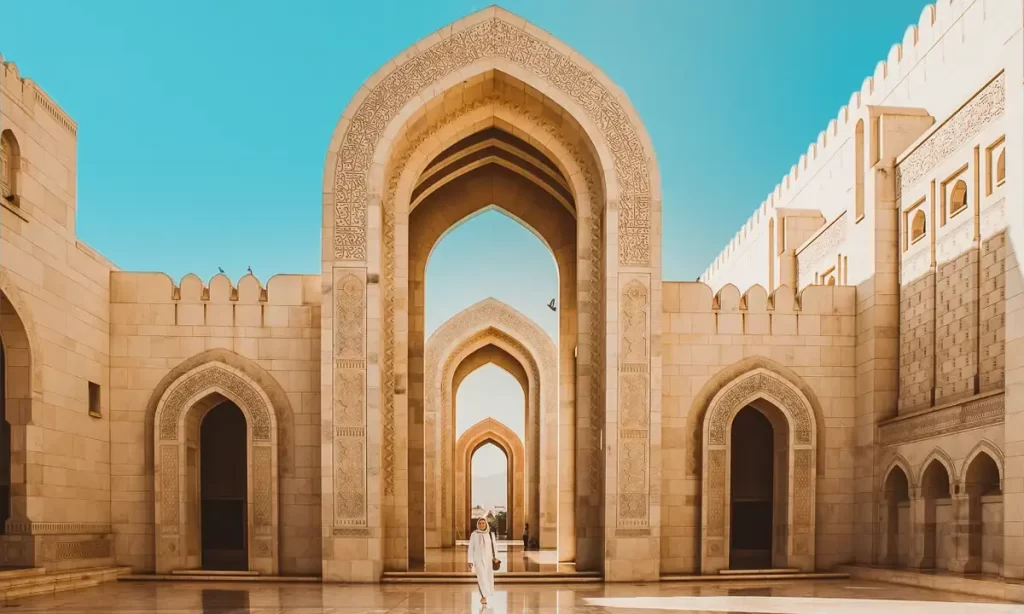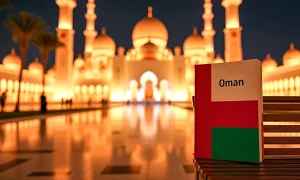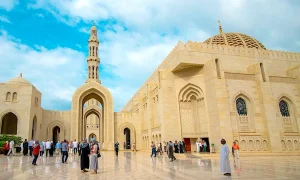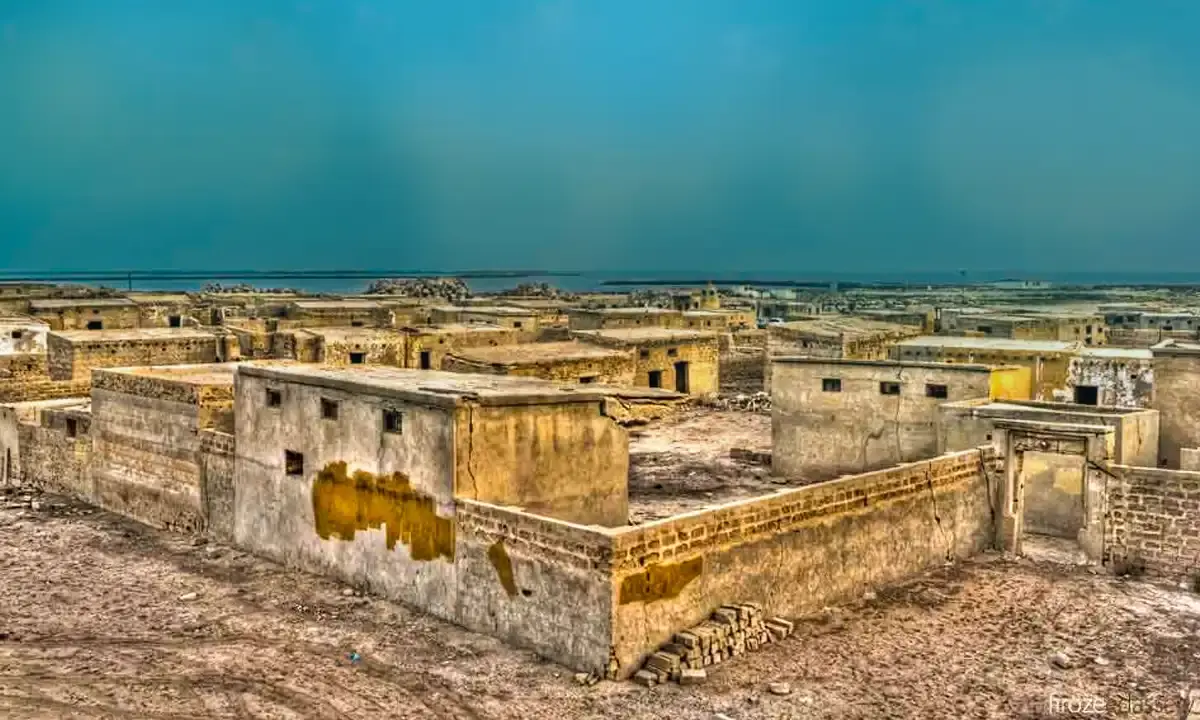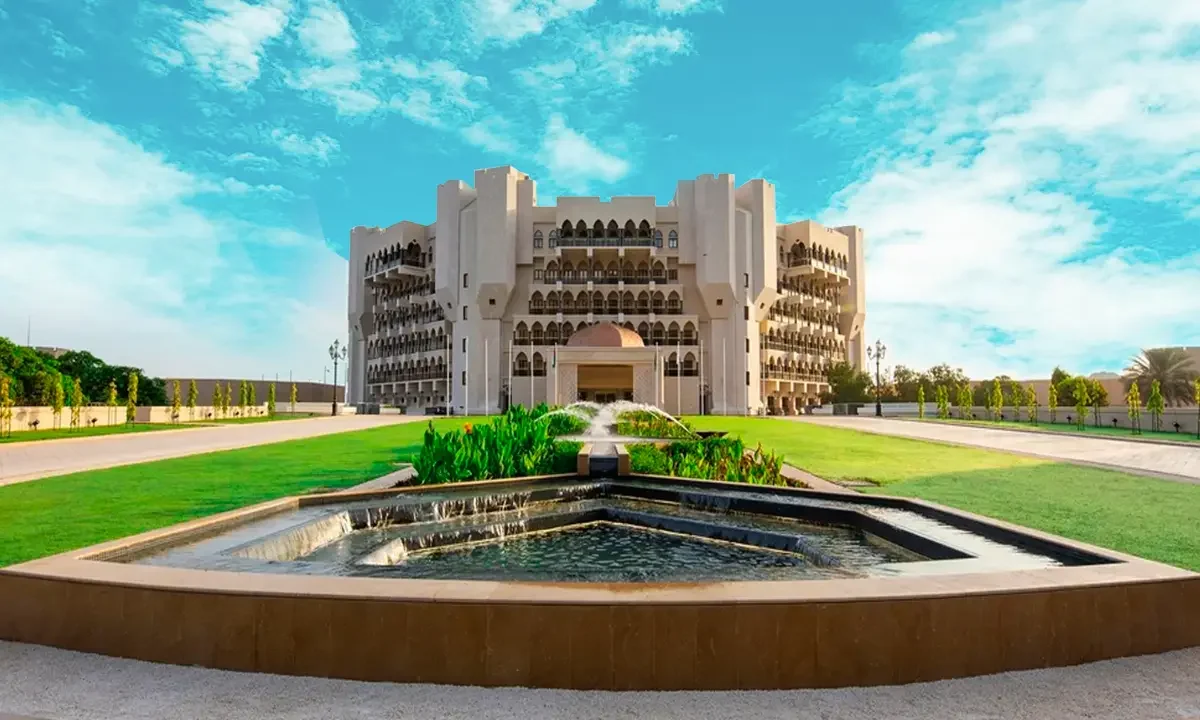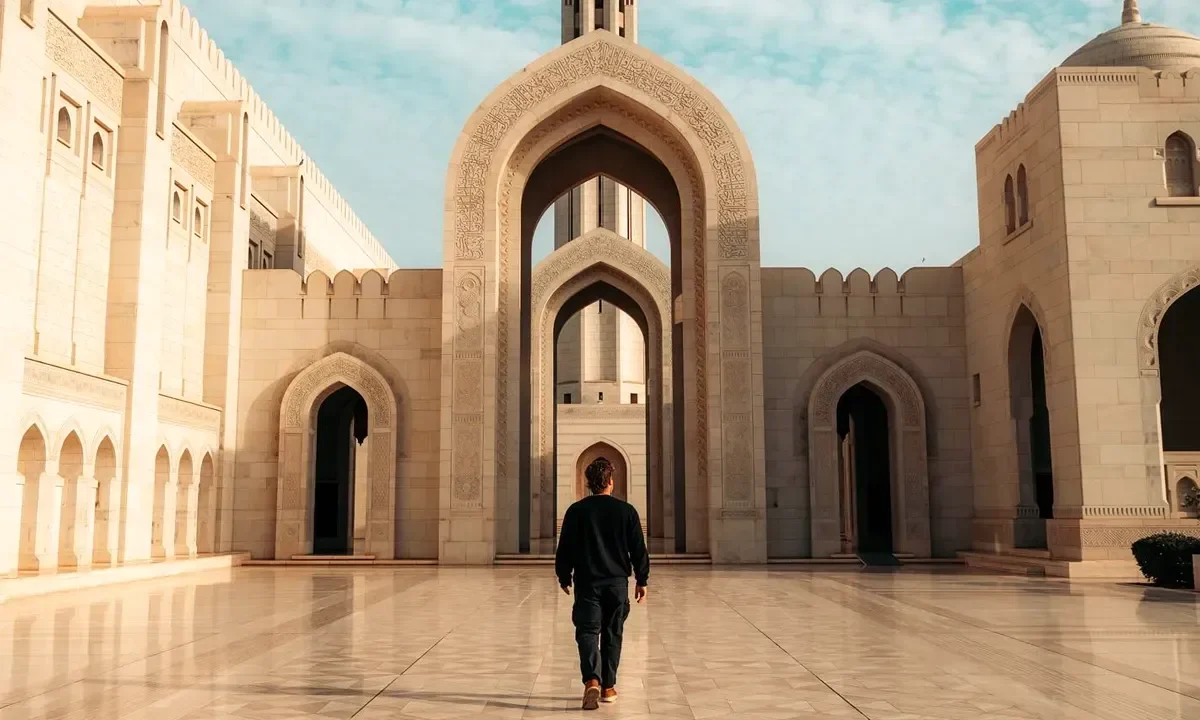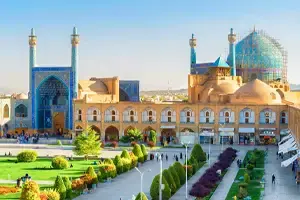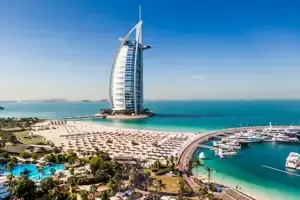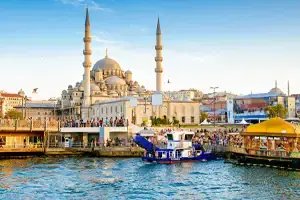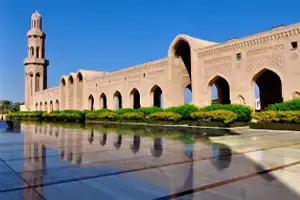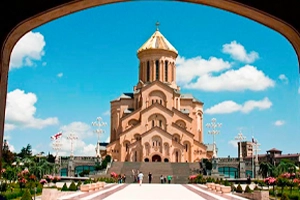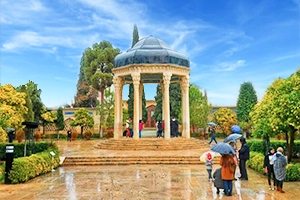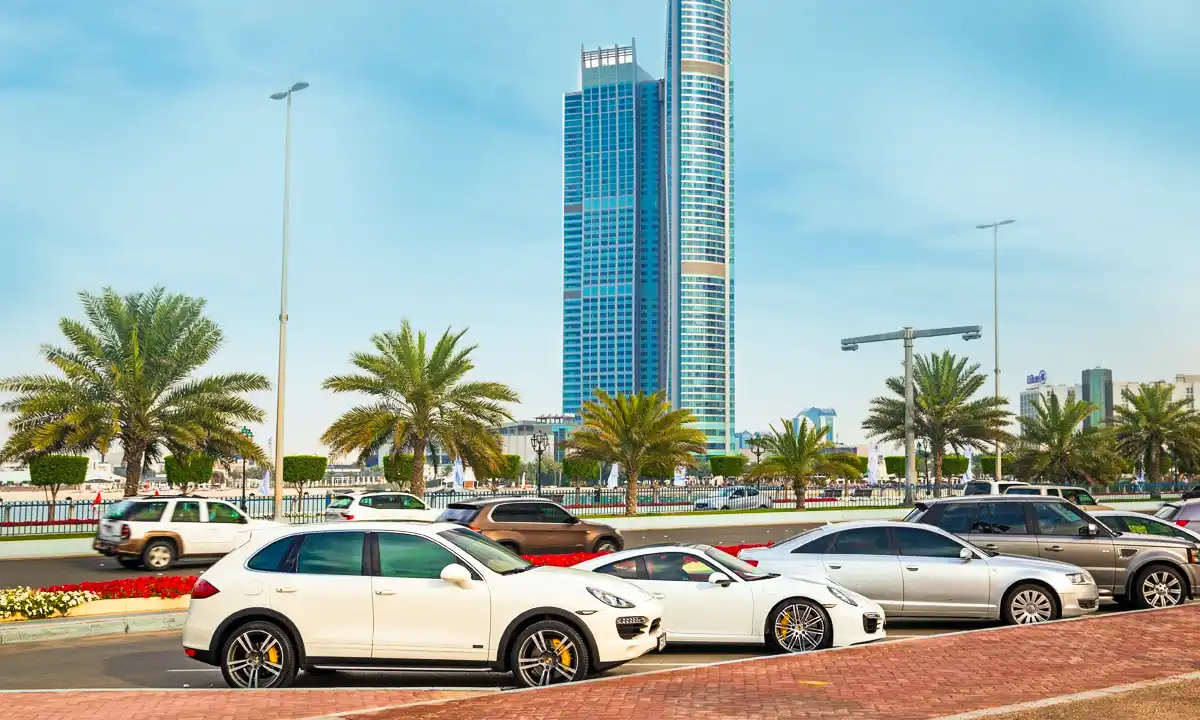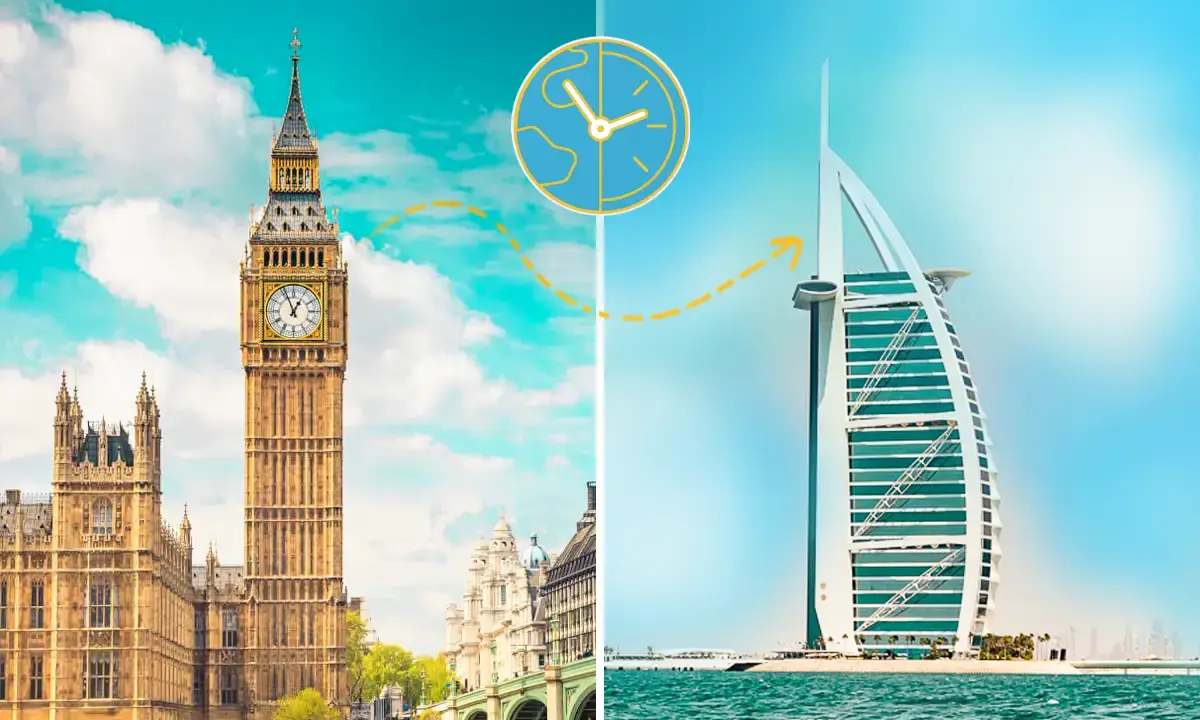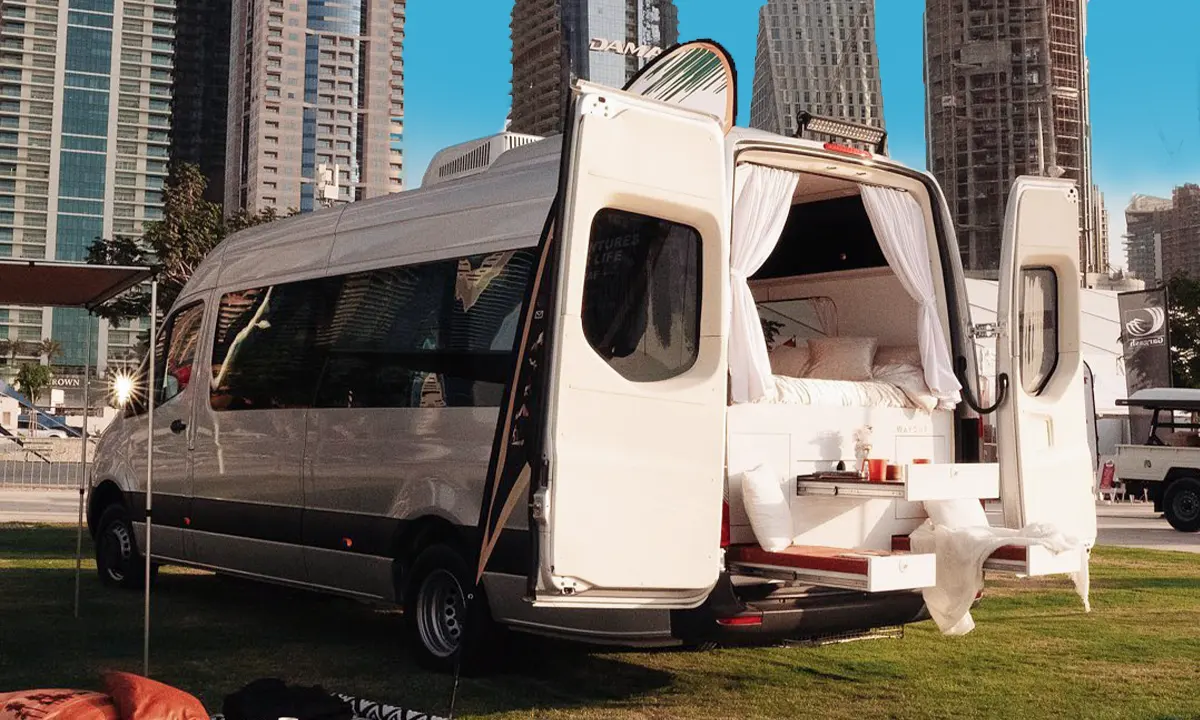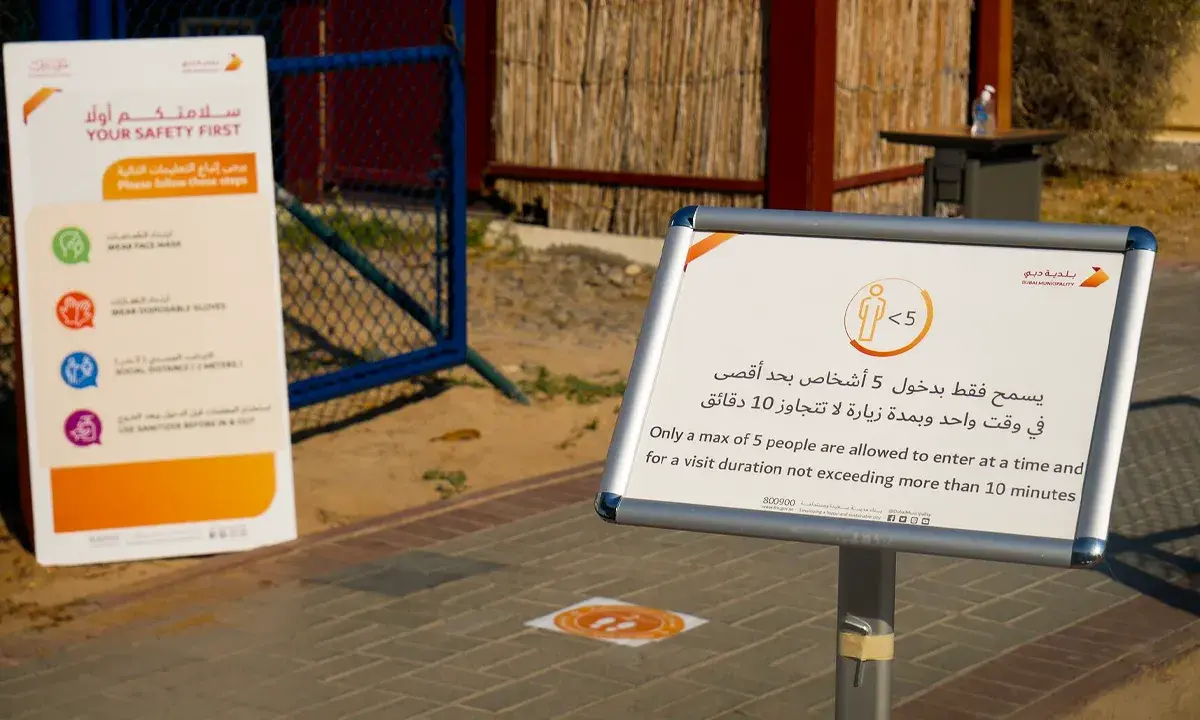Embark on a journey through the enchanting landscapes and rich cultural tapestry of Oman in our Ultimate Oman Travel Guide. This comprehensive guide unlocks the best-kept secrets of Muscat, from its bustling souks to tranquil beaches, and offers insider tips to elevate your experience. Whether you’re drawn to the allure of ancient forts, the serenity of vast deserts, or the charm of Omani hospitality, our guide is your gateway to the wonders of this Arabian jewel. Discover hidden gems, navigate local customs with ease, and create unforgettable memories with our curated selection of must-see attractions and activities. Get ready to explore Oman like never before!
Oman: An Ancient Land of Cultural Richness and Modern Wonders
Nestled on the southeastern coast of the Arabian Peninsula, Oman, officially known as the Sultanate of Oman, boasts a rich tapestry of history and modernity. Covering an area of 309,500 square kilometers, with Muscat as its vibrant capital, Oman is renowned for its historic trade of fish, dates, and agricultural products, alongside a burgeoning tourism sector. The nation distinguishes itself as one of the oldest continuously inhabited places on Earth, with evidence of human settlement dating back over 106,000 years, making it the oldest independent state in the Arab world.
The cultural legacy of Oman is intricately tied to its ruling monarchy, currently led by Sultan Haitham bin Tariq Al Said. The Sultanate’s governance, based on Sharia law, reflects a deep respect for tradition, with the national symbol, a pair of crossed Khanjars, symbolizing bravery and manhood. Oman’s bilingual signage in Arabic and English speaks to its global connectedness, despite its strong cultural roots.
Remarkably, Oman is a haven of peace, noted for its near absence of terrorism and crime. Its economy, driven by oil and gas exports, is also marked by a strong shipbuilding heritage. The country’s pivot to tourism is evident in its transition from having no hotels until 1970 to now hosting hundreds, catering to a diverse international audience. With a high literacy rate of 91.1% and a significant expatriate population, Oman presents a unique blend of ancient wisdom and contemporary progress.
Visa and Entry Requirements
Visa and entry requirements for Oman have been streamlined for ease of access for tourists. Here’s a detailed overview:
Visa Exemptions and Entry Requirements
- Visa Exemptions for 103 Countries: Nationals of 103 countries are exempt from entry visas for stays up to 14 days. This exemption requires a confirmed hotel booking, health insurance, and a return ticket.
- List of Exempt Countries: The specific countries and regions exempt from entry visas are listed online, subject to certain requirements.
Visa Application Process
- Online Application: All visa applications for Oman, including tourist visas, must be made through the Royal Oman Police (ROP) eVisa website.
- Visitor Visa Types: There are several visa types available for visitors, with the Tourist Visit Visa (Unsponsored) being the most appropriate for tourists. Other types of visas are available for different purposes.
e-Visa Application Requirements
- Basic Requirements: Applicants need a passport valid for at least six months from the arrival date, and two digital passport-sized photos on a white background. The visa application must be completed online at least four days before traveling to Oman.
- Required Documents: Necessary documents include a passport, digital photograph, credit or debit card for payment, a valid email address, and a copy of the passport information page. A printed copy of the visa should be presented to border officials.
Visa Fees and Processing Time
- Visa Fees: Depending on the nationality and the type of visa (single or multiple entry), fees range between €12 and €120 ($15 and $145).
- Processing Time and Approval: The processing time for a visa application can take up to a week, although it’s usually quicker. The visa is received via email upon approval.
Steps for Online Application
- Online Registration: The eVisa application starts with user registration on the ROP eVisa website, where personal and passport details are entered.
- Filling Application Form: Applicants need to provide passport details, travel itinerary, and other required information. After filling out the form, it should be submitted online.
- Gathering Documents: Required documents include a passport copy, a recent photograph, proof of accommodation, a copy of the return flight ticket, and proof of sufficient funds.
- Payment of Visa Fee: The visa fee, which varies based on visa type, is paid online using a credit or debit card.
This comprehensive guide to Oman’s visa and entry requirements for tourists aims to facilitate a smooth travel experience, encouraging visitors to explore the country’s rich cultural heritage and natural beauty.
Best Time to Visit
The best time to visit Oman is between October and April when the country experiences warm yet comfortable temperatures ranging from 17°C to 35°C. This period is perfect for a variety of outdoor activities, including hiking, camping, and beach lounging. It is also the high season for outdoor events and festivals, with the added attraction of turtle nesting and hatching at Ras al Jinz. However, it’s important to note that rain is typically only seen in January and February.
January and February are particularly cool months, with occasional short, sharp showers. These months are popular due to the New Year period and the Muscat Festival, which celebrates Omani culture and history. As temperatures start to rise in March and April, reaching the high 80°Fs, this time becomes ideal before the onset of summer heat and humidity. The rose-blooming season in these months adds to the beauty of the Jebel Akhdar Mountains.
May marks a transitional phase between the cooler temperatures of winter and spring and the excessive heat of the summer months. While temperatures are high, humidity levels are lower. This month also signals the start of the summer fruit season, offering an abundance of fresh produce.
The summer months of June to August are excessively hot and humid, making them less ideal for visiting. However, this is the khareef (monsoon) period in Salalah, which brings cooler but more humid conditions and attracts domestic tourists to the area. Despite the intense heat, hotels across the country lower their prices during these months.
September, while still very hot, sees a decrease in temperatures. It is still within the peak turtle viewing time at Ras al Jinz and is a great month to observe migratory birds around Salalah. October and November offer much more comfortable conditions, with temperatures in the mid to high 80°Fs. December, experiencing the coolest temperatures of the year around 70°F, can get quite cold at night, especially in the mountains. The Christmas and New Year period is extremely popular in Oman, particularly in Muscat, leading to higher hotel prices and tight availability.
In summary, for pleasant weather and a chance to engage in various activities, October to April are the best months to visit Oman. However, specific interests, such as attending cultural festivals or observing wildlife, may influence the choice of other months.
Transportation in Oman
Oman, situated on the Arabian Peninsula, offers a variety of transportation options for travelers looking to explore its stunning landscapes, rich culture, and historical sites. Understanding the available transportation methods is essential for a smooth and enjoyable trip to Oman.
Driving in Oman:
- Driving yourself is one of the most convenient ways to explore Oman.
- Oman has an extensive network of modern roads, connecting most parts of the country. However, road conditions and driving standards can vary.
- Drive defensively, as road traffic accidents are relatively high, and some local drivers may exhibit unpredictable behavior.
- Vehicles drive on the right-hand side of the road in Oman.
- Speed limits are typically 120km/h on dual-carriageways, 100km/h on single-carriageways, and 60km/h to 80km/h in built-up areas. Watch for speed alarms in rental cars.
- Beware of common road hazards, such as vehicles without lights at night, sudden lane changes without signaling, and wandering livestock (especially goats and camels).
- Flash floods can occur during rainy seasons and may block roads.
- Look out for speed bumps, especially in towns and villages.
- Traffic infringements can lead to penalties, such as jumping a red light resulting in a mandatory two-day jail term.
- Wearing seat belts is obligatory, with fines for non-compliance.
- Keep your vehicle clean, as there is a law requiring clean vehicles.
Car Rentals in Oman:
- Renting a car in Oman is a popular choice for travelers seeking flexibility and independence.
- International car rental agencies offer various car options, with daily rates starting at around 13–15 Omani Rials (OR) and rising to about 35 OR for 4WD vehicles.
- Local rental companies may provide vehicles for as low as 10 OR, but their condition may vary.
- Consider purchasing a collision-damage waiver for added peace of mind (around 2 OR per day).
- Your national driving license is generally sufficient documentation but confirm with the rental agency.
- Most car rental agencies may not rent to individuals under 21 years old.
- Fuel in Oman is relatively cheap compared to European standards, at approximately 20 pence per liter.
Public Transportation:
- Oman has a limited but functional public transportation system.
- Buses operated by the Oman National Transport Company (ONTC) connect major towns and cities.
- Bus fares are modest, ranging from 2 to 7.5 OR for inter-city journeys.
- Finding bus departure information can be challenging; look for ONTC bus stops.
- Within larger towns, taxis and micros (baisa buses) serve as local transport options.
- Micros are minivans with seating for about fifteen passengers and are a cost-effective way to get around.
- Taxis are unmetered, and fares should be agreed upon before the journey. Bargain hard, especially as a foreigner.
- Shared taxis are available for both short trips within towns and longer inter-city routes, offering an alternative to buses.
Air Travel:
Oman offers domestic air services between Muscat and Khasab in Musandam, as well as Muscat and Salalah. These flights are convenient for avoiding long road journeys.
Ferry Services:
- There is a high-speed ferry service between Muscat and Khasab in Musandam, operated by the National Ferries Company (NFC).
- Additional ferry services around the southern coast between the Khuriyah Muria islands, Shumwaymiyah, and Hasik were planned, providing alternative travel options (check for updates on these services).
Understanding these transportation options will help travelers make informed choices when planning their trips to Oman, ensuring a memorable and safe experience in this beautiful country.
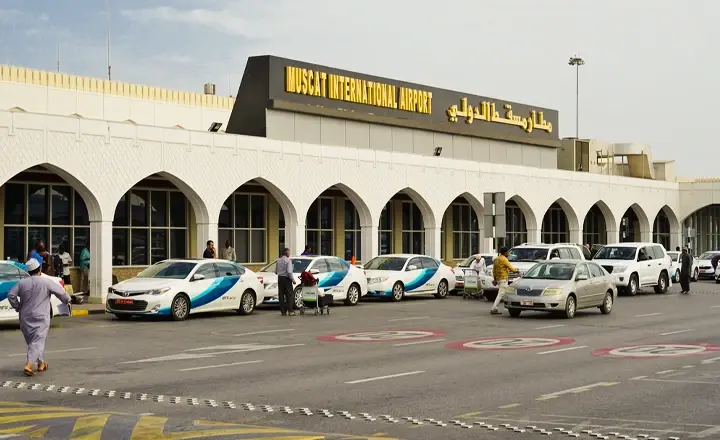
Cost and Budgeting
The cost of accommodations in Oman can vary depending on the type of accommodation, the location, and the time of year. However, in general, you can expect to pay the following:
Accommodation Costs in Oman
The cost of accommodations in Oman can vary depending on factors like the type of accommodation, location, and the time of year you visit. To give you a general idea, here are approximate price ranges:
- Budget: $20-$50 per night
- Mid-range: $50-$100 per night
- Luxury: $100+ per night
Here are some popular areas to stay in Oman and their average hotel rates:
- Muscat: $100-$200 per night
- Nizwa: $50-$100 per night
- Salalah: $50-$100 per night
Food Costs in Oman:
Omani cuisine offers a range of flavors at reasonable prices. To help you plan your dining budget, here’s an estimate of meal costs:
- Budget: $5-$10 per meal
- Mid-range: $10-$20 per meal
- Luxury: $20+ per meal
Here are some examples of popular Omani dishes and their average prices:
- Machboos: $5-$10
- Shawarma: $3-$5
- Shawarma: $2-$4
- Omani coffee: $1-$2
Service Costs in Oman:
Services in Oman are reasonably priced. Here’s an overview of what you can expect to pay for common services:
- Taxi ride: $5-$10
- Haircut: $10-$20
- Massage: $20-$50
Budgeting Tips for Oman:
To make the most of your trip to Oman while keeping costs in check, consider these budgeting tips:
- Stay in hostels or guesthouses: These are the most budget-friendly accommodation options, available throughout the country.
- Cook your meals: Save money by preparing your meals; many guesthouses and apartments come with kitchens.
- Enjoy free activities: Oman offers numerous free activities like hiking, swimming, and exploring historical sites.
- Use public transportation: Affordable and efficient, public transportation is a great way to get around Oman.
- Bargain when shopping: Don’t hesitate to haggle when shopping, as Omanis appreciate good negotiation skills.
Overall, Oman offers an affordable travel experience, and by following these budgeting tips, you can make the most of your journey while managing your expenses effectively. Enjoy your visit to this beautiful country!
Oman Duty-Free Regulations
Oman enforces relatively strict duty-free regulations for travelers. When entering the country, travelers are permitted to bring the following duty-free items:
- 2 liters of alcohol (equivalent to 2 bottles of wine or spirits or 24 cans of beer)
- 400 cigarettes or 50 cigars or 500 grams of tobacco
- Other goods valued at up to 350 Omani rials (approximately US$910)
It’s crucial to note that all duty-free items must be declared to customs upon your arrival in Oman. Failure to declare these items may result in fines or penalties.
Alcohol Regulations in Oman
Oman has stringent regulations governing the sale and consumption of alcohol:
- Alcohol is exclusively sold to non-Muslims who are over the age of 21 and possess a valid liquor license. Obtaining a liquor license is a complex process and is generally only available to residents of Oman.
- While a few licensed bars and restaurants in Oman serve alcohol, it is not widely available.
- It is illegal to consume alcohol in public places or to carry open containers of alcohol.
Here are some additional tips for travelers concerning alcohol in Oman:
- Do not bring alcohol into Oman if you are a Muslim.
- Abstain from drinking alcohol in public areas.
- Avoid carrying open containers of alcohol in public spaces.
- Show respect for Omani culture and avoid excessive alcohol consumption.
By adhering to these guidelines, travelers can ensure they remain compliant with Oman’s strict alcohol laws and enjoy a trouble-free visit to the country.
Discovering Adventure in Oman
Oman is a paradise for outdoor enthusiasts, offering a diverse range of thrilling activities amidst its breathtaking natural landscapes. Whether you’re an experienced adventurer or a casual explorer, Oman has something to offer everyone. From trekking through rugged mountains to camping under starry skies, here’s how you can immerse yourself in Oman’s outdoor wonders:
Hiking:
Oman’s diverse terrain, from the towering peaks of the Hajar Mountains to serene coastal plains, provides a variety of hiking trails for all skill levels. Here are some of the most popular hiking trails:
- Jebel Akhdar: A challenging hike offering breathtaking views of mountains and valleys.
- Wadi Shab: Leads to crystal-clear pools and waterfalls.
- Jabal Shams: A strenuous hike to Oman’s highest peak with panoramic views.
- Oman National Trail: An ambitious 1,000+ km trail covering diverse terrains across the country.
Camping:
Oman’s vast wilderness invites you to camp under the starlit skies. Several campsites offer varying levels of amenities and access to natural attractions. Popular camping spots include:
- Wadi Dam: A serene wadi for camping and swimming.
- Ras Al Jinz: Famous for nesting green turtles.
- Masirah Island: A remote island for a true nature escape.
- Jebel Shams: Mountain camping with stunning views.
Snorkeling:
Oman’s coastline boasts a rich marine ecosystem, making it a snorkeler’s paradise. Some of the best snorkeling spots include:
- Daymaniyat Islands: Excellent snorkeling off the coast of Muscat.
- Musandam Fjords: Sheltered waters home to various marine life.
- Bimmah Sinkhole: A unique snorkeling experience in a natural sinkhole.
- Sifah Beach: Known for an abundance of turtles.
Other Adventure Activities:
Apart from the mentioned activities, Oman offers various other adventure opportunities, such as:
- Rock Climbing: Rugged mountains provide challenging climbs for experienced climbers.
- Caving: Explore Oman’s network of caves and sinkholes.
- Kayaking: Serene Wadis and coastal waters are perfect for kayaking.
- Sandboarding: Exhilarating sandboarding adventures in Oman’s vast deserts.
Necessary Gear:
The specific gear required depends on your chosen activity and conditions. However, some general items to pack include:
- Sturdy hiking boots
- Comfortable layered clothing
- Sunscreen and hat
- Sunglasses
- Water bottle
- Snacks
- First-aid kit
- Rain gear (if necessary)
- Headlamp or flashlight (for camping or caving)
Safety Tips:
Safety is paramount during outdoor adventures. Here are essential safety tips:
- Always share your itinerary and expected return time with someone.
- Stay informed about weather conditions and potential hazards.
- Keep hydrated and well-nourished.
- Use appropriate safety gear for your activity.
- Respect the environment and practice Leave No Trace principles.
By following these tips and taking the necessary precautions, you can ensure a safe and memorable adventure experience in Oman’s stunning landscapes.
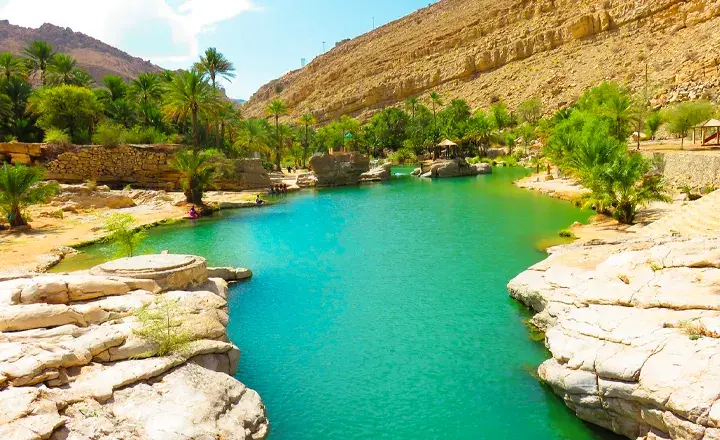
Cultural Insights and Tour Guides
Immerse yourself in Oman’s rich cultural heritage and historical significance by hiring a knowledgeable tour guide. These experienced individuals serve as cultural bridges, unlocking the hidden gems and local nuances that transform a trip from a mere sightseeing excursion to an enriching and transformative cultural experience.
Cultural Immersion: Unveiling Oman’s Tapestry
Tour guides act as cultural ambassadors, providing insights into Oman’s tapestry of traditions, customs, and beliefs. They can unravel the stories behind Oman’s architectural marvels, ancient ruins, and vibrant souks, revealing the deep-rooted cultural significance of these landmarks.
Historical Narratives: Unveiling Oman’s Past
Tour guides serve as historical narrators, bringing Oman’s past to life. They can guide you through the labyrinthine alleyways of ancient forts, narrating tales of sultans, battles, and Oman’s maritime prowess. They can also decipher the symbolism and inscriptions on ancient tombs and artifacts, revealing the rich history of civilizations that once thrived in Oman.
Local Connections: Fostering Authentic Experiences
Tour guides possess a deep understanding of local customs and etiquette, enabling you to navigate social interactions with confidence and respect. They can introduce you to local artisans, shopkeepers, and community members, fostering authentic connections that enrich your understanding of Omani culture.
Enhancing Your Travel Experience: The Benefits of Hiring a Tour Guide
Hiring a tour guide offers a multitude of benefits that enhance your travel experience:
Personalized Attention: Tour guides tailor their tours to your interests, ensuring a personalized and fulfilling experience.
Hidden Gems and Off-the-beaten-path Exploration: Tour guides possess insider knowledge, leading you to hidden gems and off-the-beaten-path locations that only locals know about.
Language Barrier Elimination: Tour guides fluent in Arabic and English bridge the language barrier, ensuring seamless communication and cultural understanding.
Local Recommendations and Logistics Support: Tour guides can provide recommendations for authentic dining experiences, local transportation, and accommodation options.
Negotiation Assistance and Cultural Sensitivity: Tour guides can assist in navigating negotiations and cultural nuances, ensuring a smooth and respectful experience.
Safety and Security Guidance: Tour guides are familiar with local safety protocols and can guide safe travel practices.
Choosing the Right Tour Guide
When selecting a tour guide, consider the following factors:
Experience and Expertise: Seek guides with extensive experience in the region and a deep understanding of Omani culture and history.
Communication Skills and Language Proficiency: Ensure your guide is fluent in both English and Arabic for effective communication.
Personality and Approach: Choose a guide whose personality aligns with your preferences, whether you prefer a more structured or flexible approach.
Recommendations and Reviews: Research online reviews and recommendations from previous travelers to gauge the guide’s reputation and service quality.
Specialization and Interests: If you have specific interests, such as photography, archeology, or traditional crafts, seek a guide with expertise in those areas.
Hiring a knowledgeable tour guide is an investment in a richer, more meaningful travel experience in Oman. Their cultural insights, historical knowledge, and local connections will transform your journey from a mere sightseeing expedition to an immersive and unforgettable cultural immersion.
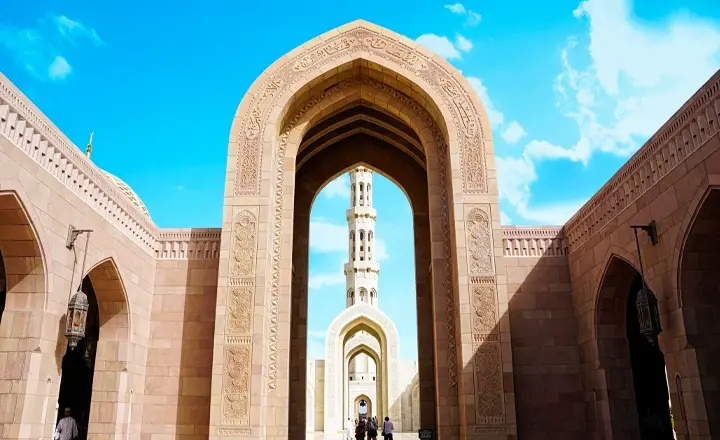
Dressing Modestly in Oman
Dressing modestly is a sign of respect for Omani culture and customs. While Oman has become more cosmopolitan in recent years, it remains a conservative country, and visitors should dress appropriately to avoid unintentionally offending.
General Guidelines for Modest Dressing
- Cover Your Shoulders and Knees: Avoid sleeveless tops, shorts, and miniskirts.
- Choose Loose-Fitting Clothing: Opt for loose-fitting attire, as tight clothing is considered immodest.
- Avoid Revealing Clothing: Refrain from wearing low-cut tops, short shorts, and overly tight garments.
Specific Attire Recommendations for Men
- Bottoms: Men should wear long pants or shorts that extend to the knees.
- Tops: T-shirts are acceptable, but sleeveless shirts should be avoided.
- Visiting Mosques: When visiting a mosque, men should wear a full-length robe called a dishdasha.
Specific Attire Recommendations for Women
- Bottoms: Women should wear long skirts or pants that cover their knees.
- Tops: Blouses and tops should cover the shoulders.
- Visiting Mosques: When visiting a mosque, women should wear a headscarf and a long robe called an abaya.
Additional Tips for Dressing Modestly
- Swimming Attire: When swimming, wear a swimsuit that covers your shoulders and knees.
- Public Areas: Avoid wearing swimwear in public areas outside of designated beach or pool areas.
- Religious Sites: Be especially mindful of your clothing choices when visiting religious sites.
- Respecting Local Customs: When traveling to rural areas, consider dressing more modestly.
Respecting Local Customs and Dress Codes:
- Religious Sites: Always dress more modestly when visiting religious sites, regardless of location.
- Respect for Traditions: Be respectful of local customs, traditions, and the conservative nature of Omani society.
By adhering to these guidelines and showing respect for the local customs and dress codes in Oman, you can ensure that you dress appropriately and respectfully while enjoying your visit to this beautiful country.
Visa Exemptions
Oman offers visa exemptions for citizens of several countries, allowing them to enter and stay in the country for a specified period without obtaining a visa in advance. These exemptions are primarily based on reciprocity and diplomatic agreements between Oman and the respective countries.
Countries with Visa Exemptions for Oman
As of October 2023, citizens of the following countries are exempt from obtaining a visa for tourist stays in Oman:
GCC Countries: Citizens of fellow Gulf Cooperation Council (GCC) member states – Bahrain, Kuwait, Qatar, Saudi Arabia, and the United Arab Emirates – can enter and stay in Oman indefinitely without a visa.
Selected Countries: Citizens of 103 other countries are eligible for visa-on-arrival upon entering Oman. These countries include:
- European Union (EU) member states
- Australia
- Canada
- Hong Kong
- Japan
- New Zealand
- Singapore
- South Korea
- United States
Diplomatic and Official Passport Holders: Holders of diplomatic and official passports from Belarus, Cyprus, Germany, Japan, Kazakhstan, Portugal, Romania, Russia, South Korea, and Switzerland can enter and stay in Oman for up to 90 days without a visa.
Duration of Stay for Visa-Exempt Travelers
The duration of stay for visa-exempt travelers in Oman varies depending on their nationality.
- GCC Citizens: Citizens of GCC countries can stay in Oman indefinitely without a visa.
- Citizens with Visa-on-Arrival: Citizens of countries eligible for visa-on-arrival can stay in Oman for up to 14 days.
- Diplomatic and Official Passport Holders: Holders of diplomatic and official passports from the specified countries can stay in Oman for up to 90 days without a visa.
Visa Requirements for Other Nationalities
Citizens of countries not listed above are generally required to obtain a visa before entering Oman. This can be done through the Royal Oman Police (ROP) eVisa website or at Omani embassies and consulates abroad.
Additional Information
- Visa exemptions are subject to certain requirements, such as a valid passport, onward travel tickets and sufficient funds for the duration of the stay.
- Visa regulations are subject to change, and it is always advisable to check the latest information with the ROP or the nearest Omani embassy or consulate before traveling.
Omani Cuisine
| Dish/Beverage | Description |
|---|---|
| Machboos | A fragrant rice dish cooked with saffron, turmeric, and meat or seafood. It is a national dish of Oman and is often served with a side of yogurt or chutney. |
| Shuwa | A slow-cooked lamb or goat dish marinated in spices and wrapped in banana leaves. It is traditionally cooked underground for up to 48 hours, resulting in a tender and flavorful meat. |
| Harees | A thick wheat porridge cooked with meat or chicken. It is a hearty and nutritious dish that is often served during Ramadan. |
| Omani Halwa | A sweet and sticky dessert made from brown sugar, honey, eggs, and various spices. It is often served with coffee or tea. |
| Kahwa | Omani coffee, which is traditionally brewed with cardamom and served in small cups. It is a symbol of hospitality and is often offered to guests. |
| Laban | A refreshing yogurt drink that is often flavored with rose water or lemon. It is a popular beverage during the summer months. |
In addition to these traditional dishes and beverages, Oman offers a diverse range of culinary delights, including fresh seafood and sweet pastries. Travelers should consider trying traditional Omani dishes and beverages for the following reasons:
- Experience Rich Flavors: Omani cuisine is renowned for its use of spices, herbs, and fresh ingredients, providing a unique and flavorful dining experience.
- Learn About Culture: Food plays a significant role in Omani culture, and trying traditional dishes can offer insights into the country’s history and customs.
- Support Local Communities: Dining at Omani restaurants and cafes helps support local businesses and communities, contributing to the sustainable growth of the country’s culinary scene.
Duration of Stay
I recommend staying in Oman for at least a week to fully experience its attractions. Here’s a possible itinerary for a 7-day trip:
Day 1: Muscat Exploration
- Arrive at Muscat International Airport and collect your rental car.
- Check in to your hotel in Muscat.
- Visit the Sultan Qaboos Grand Mosque, an architectural marvel.
- Explore the Royal Opera House, a cultural gem.
- Savor a traditional Omani dinner at one of Muscat’s fine restaurants.
Day 2: Nizwa Excursion
- Take a day trip to Nizwa, a UNESCO World Heritage Site.
- Explore the historic Nizwa Fort, offering panoramic mountain views.
- Visit Nizwa Souq, a bustling traditional market.
- Journey to Jabal Akhdar, Oman’s highest mountain range.
Day 3: Wadi Bani Khalid Adventure
- Embark on a day trip to Wadi Bani Khalid, a picturesque oasis with turquoise pools and waterfalls.
- Enjoy swimming in the natural pools or hike up the wadi.
- Have a scenic picnic lunch with breathtaking views.
Day 4: Coastal Exploration
- Drive to Sur, a coastal town renowned for its dhow-building yards.
- Visit the Ras Al Jinz Turtle Reserve, where you can witness nesting turtles at night.
- Take a boat trip to the Daymaniyat Islands, known for their beautiful beaches and snorkeling spots.
Day 5: Journey to Salalah
- Travel to Salalah, a lush green city in southern Oman.
- Explore Mirbat Beach, a popular spot for swimming and sunbathing.
- Visit Salalah Souq, where you can find local products like frankincense.
Day 6: Empty Quarter Adventure
- Embark on a day trip to the Empty Quarter, the world’s largest sand desert.
- Enjoy an exhilarating dune-bashing adventure in a 4×4 vehicle.
- Experience a camel ride through the desert dunes.
Day 7: Leisure and Departure
- Relax at the beach or pool at your hotel.
- Take advantage of the duty-free shopping at the airport.
- Depart for your journey back home.
This itinerary offers a mix of cultural exploration, outdoor adventures, and relaxation, allowing you to experience the best of Oman. Feel free to customize it to match your interests and preferences while enjoying the diverse attractions Oman has to offer.
Shopping for Local Specialties
Shopping in Oman’s traditional souks, or marketplaces, is an immersive experience filled with vibrant sights and unique finds. Whether you’re seeking local handicrafts, spices, textiles, or souvenirs, these tips will enhance your shopping adventure:
- Take Your Time: Souks can be bustling and overwhelming, so allow yourself ample time to explore the various stalls and compare prices. Leisurely browsing can lead to discovering hidden gems.
- Embrace Bargaining: Bargaining is a customary practice in Omani souks, so don’t hesitate to negotiate prices with the vendors. Start by offering a price considerably lower than the asking price, and be prepared to engage in friendly haggling.
- Show Respect: Souks are not just places of commerce but also cultural hubs. Show respect for the vendors and their merchandise. Politeness and a friendly demeanor go a long way in building rapport.
Bargaining Practices in Oman:
- Politeness Wins: Approach bargaining with politeness and a friendly attitude. Vendors are more likely to offer better deals to respectful customers.
- Start Low, but Not Too Low: Initiate negotiations with an offer lower than the asking price, but avoid making an extremely low offer that may offend the vendor. Find a balance to kickstart the bargaining process.
- Patience is Key: Bargaining can be time-consuming, so exercise patience throughout the negotiation. Rushing can hinder the chances of reaching a favorable agreement.
- Be Prepared to Walk Away: If an agreement seems unattainable, don’t hesitate to walk away. Souks offer a multitude of choices, and you’re likely to find what you desire at a price that suits you elsewhere.
When shopping in Omani souks, consider these specific items:
- Textiles: Explore exquisite textiles, including handwoven carpets, luxurious pashmina shawls, and traditional Omani dresses.
- Spices: Delve into Oman’s spice heritage with an array of spices like frankincense, cumin, cardamom, and cinnamon.
- Handicrafts: Appreciate the craftsmanship of Omani artisans through pottery, jewelry, wood carvings, and other handcrafted treasures.
- Souvenirs: Collect keepsakes like postcards, keychains, and fridge magnets to commemorate your Omani journey.
Shopping in traditional souks is not just about acquiring goods but also an opportunity to immerse yourself in Omani culture. These tips will ensure a positive and rewarding shopping experience while respecting local customs and traditions.
Discover the Unmissable Sights of Oman
Oman is a treasure trove of captivating destinations that offer a glimpse into the country’s rich culture and natural beauty. Here’s a curated list of must-see places and attractions:
Muscat:
The capital city, Muscat, is a must-visit destination brimming with architectural marvels. Explore the Sultan Qaboos Grand Mosque, admire the Royal Opera House, and glimpse the exquisite Al Alam Palace. Dive into Omani culture at Mutrah Souq or enjoy a picturesque stroll along the Corniche by the Arabian Sea.
Nizwa:
As a UNESCO World Heritage Site, Nizwa is steeped in history. Marvel at the Nizwa Fort, a 17th-century stronghold offering panoramic mountain views. Immerse yourself in the vibrant Nizwa Souq, where spices and souvenirs await.
Wadi Bani Khalid:
Discover the enchanting oasis of Wadi Bani Khalid with its turquoise pools and waterfalls. Whether you seek swimming, hiking, or camping, this natural wonder is sure to captivate.
Jabal Akhdar:
Oman’s highest mountain range, Jabal Akhdar, boasts breathtaking vistas and traditional villages. Dive into the heart of Oman’s natural beauty and cultural heritage.
Sur:
This coastal town is renowned for its dhow-building yards. Embark on a nighttime adventure at Ras Al Jinz Turtle Reserve, where nesting turtles await.
Daymaniyat Islands:
These islands off the coast of Muscat are a paradise for snorkeling and diving enthusiasts. Explore vibrant marine life beneath crystal-clear waters.
Wahiba Sands:
Experience the vast desert expanse of Wahiba Sands, home to traditional Bedouin communities. Savor a camel ride or an exhilarating dune-bashing adventure.
Salalah:
Head to the lush green city of Salalah in southern Oman. Revel in beautiful beaches and immerse yourself in the annual Khareef monsoon festival.
Mirbat Beach:
Relax and unwind at Mirbat Beach, a popular spot for swimming and sunbathing in Salalah.
Empty Quarter:
Journey into the world’s largest sand desert, the Empty Quarter. Enjoy off-roading thrills and camping under the starry desert sky.
This itinerary is flexible, allowing you to tailor your trip to suit your interests. Oman’s diverse offerings guarantee a memorable experience, no matter how long you stay.

Currency and Tipping
Travelers to Oman should be aware of the local currency, exchange rates, and tipping customs to navigate financial transactions smoothly.
Omani Currency and Exchange Rates
- Currency: The official currency of Oman is the Omani Rial (OMR), symbolized as ﷼. It is abbreviated as OMR and divided into 1000 baisa.
- Notes and Coins: Rial notes range from OMR 1 to OMR 50, with baisa notes in denominations of 100 and 500. Coins are available in 5, 10, 25, and 50 baisa denominations, but may not be accepted everywhere.
- Exchange Rate Stability: The rial is pegged to the US dollar and rarely fluctuates.
- Exchanging Money: It’s advised to use the Omani Rial for transactions. Currency exchange desks are available at airports, high-end hotels, and various places around the country. ATMs are widely available and accept foreign Visa and MasterCards.
Tipping Customs in Oman
- General Approach: Tipping is not as customary in Oman as in some other countries and is generally a discretionary gesture to show appreciation for good service.
- Restaurants: In restaurants, tipping is not mandatory but appreciated for exceptional service. Around 10% of the total bill or rounding up to the nearest rial is customary.
- Hotels: Tipping is common in hotels for the staff including housekeeping and porters. Around 1 to 2 OMR per day for housekeeping and per bag for porters is considerate.
- Transportation: For taxis or private drivers, tipping is not mandatory but a tip of around 10% of the fare is a generous gesture for good service.
- Other Services: In situations like guided tours or spa services, tipping around 10% of the service cost is appropriate.
- Local Markets and Service Charges: Tipping is not customary in local markets as prices are generally fixed. It’s advisable to check if a service charge is already included in your bill before leaving an additional tip.
Practical Tips for Tipping
- Carry small bills in Omani Rial for convenience in tipping.
- Express gratitude with a smile and saying “shukran” (thank you in Arabic).
- Observe local customs and adjust your tipping amount based on the level of service received.
- Remember, tipping is discretionary and should reflect your satisfaction with the service.
By understanding these aspects of Omani currency and tipping customs, travelers can ensure respectful and appropriate financial interactions during their stay in Oman.
Language and Communication
Oman’s linguistic landscape is rich and diverse, reflecting its cosmopolitan nature and regional influences. Here’s an insight into the languages spoken in Oman and some useful Arabic phrases for travelers:
Languages Spoken in Oman
- Arabic: The official and predominantly used language across Oman. Omani Arabic has various regional dialects, influenced by languages like Hindi and Swahili.
- English: Widely spoken and understood, especially in the tourism and business sectors.
- Baluchi: One of the primary languages in Oman, particularly among the Baloch population.
- Regional Languages: Dhofar region speaks Shehri; Mehri is spoken in western Oman; Harsusi and Hobyot are other indigenous languages.
- Influence of Other Languages: Omani Arabic has integrated words from languages like Swahili and Hindi, creating a unique dialectal variation from the Arabic spoken in the Gulf region.
Useful Arabic Phrases for Travelers
| Arabic Phrase (with English transliteration) | English Meaning |
|---|---|
| Marhaba | Hello |
| Shukran | Thank you |
| Afwan | You're welcome |
| Min fadhlik | Please |
| Aasif | Sorry |
| Shnolik? | How are you? |
| Lau samaht (to men)/lau samahti (to women) | Pardon me |
| Masalama | Goodbye |
| Shoo ismak (to men)/shoo ismish (to women) | What is your name? |
| Ismee | My name is |
| Bihki inglizi | I speak English |
| Mah bihki arabi | I do not speak Arabic |
| As-salaamu-alaikum | Peace be upon you |
| Wa-alaikum-salaam | And unto you peace |
| Inshallah | God-willing |
| Naam | Yes |
| La | No |
| yallah | Come |
| imshi | Go away |
| Kwayyis | Okay |
| mish kwayyis | Not okay |
| Kam as saa? | What time is it? |
| Shu? | What? |
| funduq | Hotel |
Internet and Electrical Sockets
For travelers heading to Oman, it’s essential to know about the internet connectivity and electrical socket types you’ll encounter there.
Internet Connectivity in Oman
- Service Providers: Oman’s internet infrastructure is served by two major providers, Omantel and Ooredoo. Setting up an internet connection is straightforward, involving provider selection, installation, and service activation.
- Mobile Internet: There has been an 11.0% increase in mean download speed from 34.71 Mbps to 38.52 Mbps. Omantel and Ooredoo are the leading providers, offering the fastest mobile internet services.
- Starlink Agreement: Oman’s Ministry of Transport, Communications, and Information Technology has signed an agreement with Starlink to provide internet connectivity in remote areas, aiming to reduce the digital divide between urban and rural areas.
- Home Broadband Options: Omantel offers Wireless Home Broadband with up to 1000 GB data plans and a ‘plug-and-play’ setup, while Ooredoo offers 4G Home Internet with various data packages and speeds up to 10 Mbps.
Electrical Sockets in Oman
- Type G Sockets: Oman uses the British standard type G electrical sockets and plugs. These are three-pin grounded sockets compatible with plug type G.
- Voltage and Frequency: The standard voltage is 240 V, and the frequency is 50 Hz. This is compatible with devices from countries where the standard voltage is between 220 – 240 V, like the UK, Europe, Australia, and most of Asia and Africa.
For travelers, it’s advisable to ensure your devices are compatible with type G sockets or to carry appropriate travel adapters. For internet connectivity, consider your location in Oman and the type of service (mobile or fixed broadband) that best suits your needs. With these preparations, you’ll be well-equipped to stay connected and power your devices during your stay in Oman.
Hospitality and Local Traditions
Omani hospitality is deeply rooted in its culture and traditions, exemplified by the serving of coffee, dates, and the use of frankincense.
Coffee and Dates in Omani Hospitality
Qahwa (Omani Coffee): When invited to an Omani home, guests are often served qahwa, a traditional Omani coffee. This coffee, flavored with cardamom and sometimes rose water, is served in small handle-less cups called fenjans from a unique pot known as a dallah.
Significance of Dates: Alongside coffee, a bowl of dates is a common welcoming gesture in Omani households. Dates are an integral part of Omani life, considered a divine gift. They are consumed fresh after harvest and dried for use throughout the year.
Serving Etiquette: The coffee is always served with the right hand, reflecting the cultural norms and etiquette of Oman. Additionally, guests may be offered fruits, Omani halwa (a local dessert), and homemade cakes and baked treats.
Frankincense in Omani Culture
Cultural and Spiritual Significance: Frankincense, known for its aromatic resin, holds a special place in Omani culture. It’s believed to purify the atmosphere, ward off diseases, and bring protection and good vibes. This belief is deeply embedded in Omani folklore and practices.
Experience in Local Villages: To truly immerse in Omani hospitality, it’s recommended to visit the hidden villages across the country. Here, the burning of frankincense is a common practice, and visitors can experience the traditional way of life, closely tied to nature and spirituality.
For travelers, understanding these aspects of Omani hospitality enriches the travel experience. Engaging respectfully in these traditions, like accepting coffee and dates when offered, can lead to a deeper appreciation of Oman’s rich cultural heritage.

Last Words
Concluding your journey through Oman, you’ll find it a land of stunning landscapes, rich history, and warm hospitality. From rugged mountains and serene beaches to bustling souks and tranquil oases, Oman offers diverse experiences for every traveler. The deep-rooted traditions, like sharing coffee and dates, and the aroma of frankincense provide a unique cultural immersion. Modern infrastructure combined with ancient customs ensures a comfortable yet authentic experience. As you leave, you’ll carry memories of scenic vistas, architectural marvels, and the kindness of the Omani people, making Oman a truly unforgettable destination.
FAQ
Now, Let’s answer some questions
What can tourists buy on the Visit Oman platform?
Tourists and travel operators can purchase accommodation, air tickets, tours, activities, and more through the Visit Oman booking portal. Travel agencies can buy set packages and create their package to match customer needs.
What types of accommodations are available in Oman?
Oman offers a wide range of accommodations, including hotels, resorts, serviced apartments, and glamping options.
What is the best time to visit Oman?
The ideal time to visit Oman is between October and April, with moderate temperatures and the hatching of green turtles on the shores of Ras Al Jinz. Salalah, a sub-tropical city, experiences drizzle from mid-June to mid-August due to India’s monsoon, transforming it into a verdant oasis.
What are the cultural norms in Oman?
Oman’s culture is a blend of Arabic, Bedouin, and East African influences. Traditional Omani culture is visible in clothing and food. Visitors should dress respectfully, covering from neck to ankle in loose-fitting clothes, and wear swimsuits only at the beach.
How expensive is traveling in Oman?
Traveling in Oman can be costly, with major expenses including accommodation and transport. The cheapest hotel rooms start at around 12–15 Omani Rials (OR) per night, and prices increase significantly for mid-range and top-end accommodations.
Is Oman a safe country?
Oman is extremely safe, with rare occurrences of violent crime and even petty crimes like burglary and pickpocketing being significantly less common than in most Western countries.
What are the customs regulations for visitors?
Visitors can import up to two liters of alcoholic beverages (non-Muslims only) and a reasonable quantity of tobacco. Travelers arriving from yellow fever-infected areas in Africa and South America need a vaccination certificate, and those carrying prescription drugs should have a doctor’s letter.
What are the entry requirements for Oman?
Most nationalities, including UKthe, US, Ireland, Australia, New Zealand, and South Africa, need a visa. Tourist visas can be purchased on arrival at Muscat airport for 20 OR, valid for one month. Only single-entry visas are available at the airport; multiple-entry visas must be applied for in advance online.
What about health concerns and insurance in Oman?
There are no serious health risks in Oman, but it’s recommended to take out travel insurance. This insurance should cover medical expenses, as you’ll have to pay for all medical treatment otherwise. Note that most insurance policies exclude certain adventure activities like caving or rock climbing.
What is the situation regarding internet and communication in Oman?
Internet cafés are available in major cities like Muscat, Salalah, Nizwa, and Khasab, but it can be challenging to find internet access elsewhere. The country code for Oman is +968, and public phones are scarce, so it’s advisable to bring a mobile phone. Check relevant charges before traveling, and European GSM handsets generally work well in Oman.
